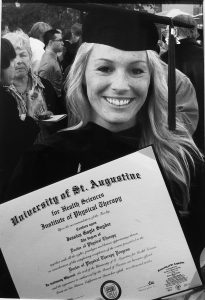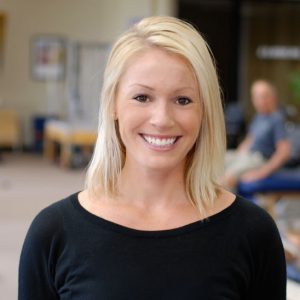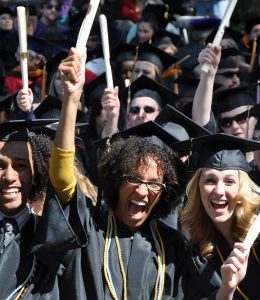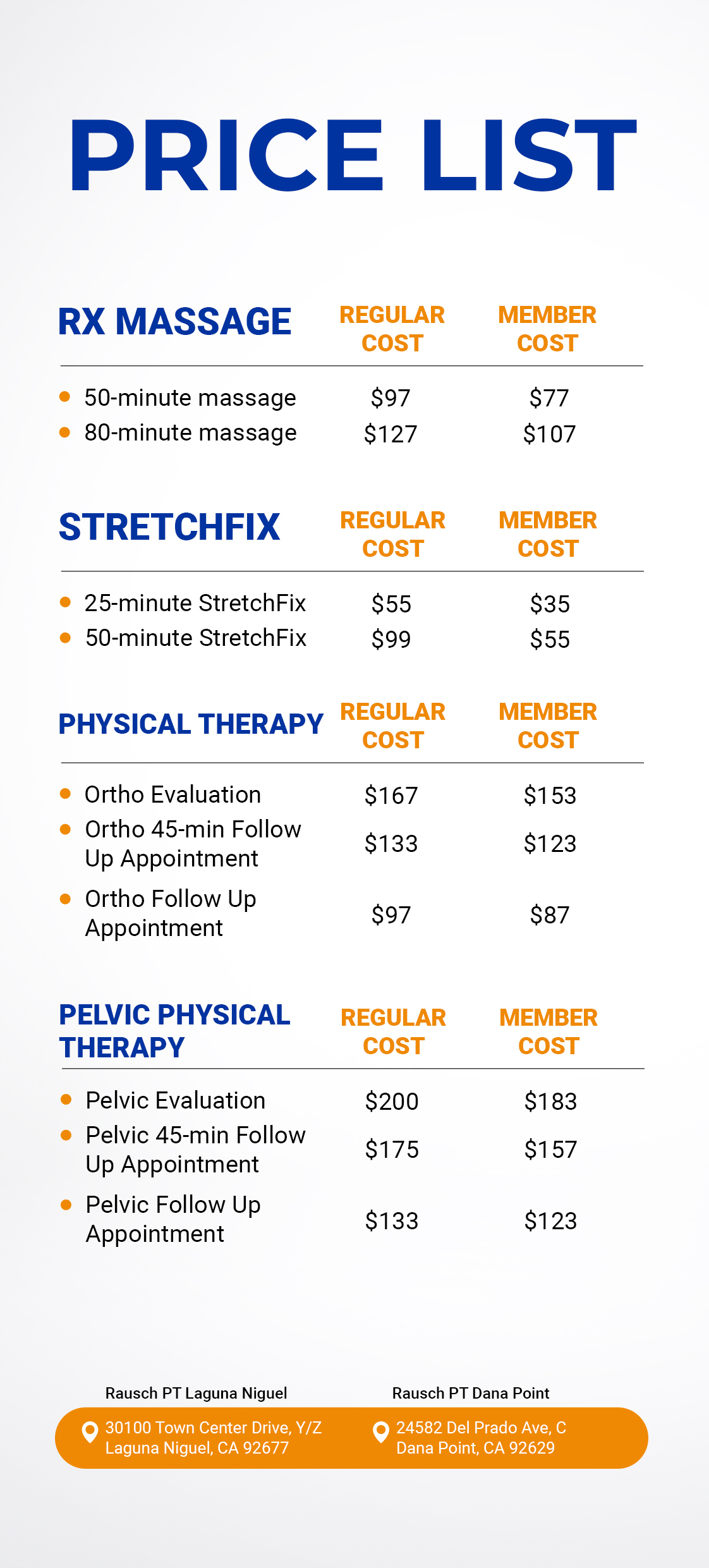1. Bring Mindfulness Into Your Day Stress and anxiety don’t just affect your mind—they impact your nervous system, sleep, recovery, and even how your body experiences pain. Mindfulness and meditation,
So, You Want to Be a Physical Therapist?
June 28, 2016 8:20 pm / Category: Physical Therapy
BY JESSICA SNYDER, DPT, RAUSCH PHYSICAL THERAPY
Hi, I’m Jessica, and I’m a doctor of physical therapy.

Rausch PT physical therapist Jessica Snyder receiving her doctorate in physical therapy in 2012.
As a licensed DPT, I treat many high school-aged patients (or their parents) who will often ask me what it takes to become a physical therapist. Since June is graduation month and there are thousands of high school students out there wrapping up one chapter of their life and looking to the next, let’s talk career planning and professional education for the field of physical therapy.
The Path to Becoming a Physical Therapist
Before you can even start down this career path, you must first complete your undergraduate education. After that, you’re on to… yep, more school! “PT school” is a graduate-level program that typically takes three years to complete. However, just like any other graduate program, getting in to PT school is a tough process. So, set yourself up for success and research the requirements for different PT schools while you’re still an undergrad.
Generally, all PT schools will require:
- Bachelor’s Degree
- Prerequisite Courses
Again, PT school is a graduate level, doctorate degree, so upon graduation, your formal title is “Doctor of Physical Therapy.” It is not a PhD.
Picking the Right Major for Your Future
The undergrad years are essentially “prep time” for anyone who is PT school-bound (or Physician’s Assistant school or Med school, for that matter.) You’ll spend your first few years completing your general education courses, and then you’ll move on to any and all courses required for your declared major.
As far as PT school is concerned, certain undergraduate degrees will transfer better than others into a graduate-level physical therapy program. For instance, most of the required PT school courses are already built in to an Applied Health, Kinesiology or Athletic Training/Sports Medicine major. So, of those three, which should you pick?
Applied Health
Essentially, pre-med. Applied Health is a great major if you think you may be interested in becoming a nurse (can be a undergrad/grad combo), occupational therapist (Master’s Degree), physician assistant (Master’s Degree), or some other healthcare profession (e.g. pharmacology, radiology, etc.) Pro: you have so many options and opportunities for grad school! BUT, you do have to go on to grad school. Applied Health is pre-med—something else has to follow 🙂
Kinesiology
Kinesio is a bit more targeted in your professional career options, but the coursework is not as demanding as Applied Health (there’s less emphasis on the “hard sciences.”) This would be a good option if you think you may want to go into biotech, product development or prosthetic device/adaptive equipment design. You could also go into teaching at the high school-level, however this would require that you complete a credentialing program (another two years of schooling after undergrad.)
Athletic Training
The biggest advantage to completing an Athletic Training Education Program (ATEP) is the amount of on-field, clinical experience you get as a student. You are hands-on with athletes and patients from the start, learning valuable evaluation, assessment and treatment skills , plus you get to spend less time in the lab and more time on the field! Pros: When you graduate, you can start working (and getting paid!) right away; you can work with sports teams at the high school, college, or professional level, or you can work in a PT clinic, hospital, or sports performance facility. Many ATEP graduates take the national board exam to become certified athletic trainers, which is something I highly recommend as it makes you more desirable both as an employee and as a PT school applicant.
The overarching “pro” of all of these majors is that you know that the majority of PT school prerequisites are already built into your undergraduate degree. Just remember that there may be a few classes that you will need to take as electives.
Planning for Prerequisite Courses
Every PT school has its own prerequisite coursework listed as a part of their application criteria, so check those lists and make sure you take all the necessary classes to avoid having to take those classes after you graduate (i.e. at a local junior college) before being able to apply to grad school. The Physical Therapy Centralized Application Service (PTCAS) website is a good tool for researching the general classes required by the majority of PT Schools (e.g. Anatomy, Physiology, one year of Chemistry, one year of Physics, certain psychology classes, etc.) so get organized early to ensure you at least take these classes. However, don’t forget to also check the program websites for your PT School(s) of choice to see if they might require some additional coursework. For instance, some schools require Trigonometry, while others are satisfied with College Algebra, so make sure you check!
Actions Speak Louder than Transcripts
While signing up for the right class or major can boost your chances of making it into PT School, your attitude and actions will inevitably decide whether you get that doctorate degree or not. As someone who’s been down this path before, here are my last bits of personal advice for realizing your dream of becoming a licensed doctor of physical therapy.
- Go the extra mile. PT school (well, graduate school in general) is getting more and more competitive! Take every opportunity to participate in research, internships, and volunteer opportunities to make yourself a more desirable candidate.
- Be memorable and recommendable. You will need letters of recommendation from your professors and employers when applying to PT school, so earn them! Work hard, network, and stand out (in a good way.)
- Act with your future in mind. In any healthcare field you must qualify for licensure, and all accrediting/licensing bodies—federal and state—will perform thorough background checks. Drug and alcohol use/violations, such as DUIs, are not taken lightly and can delay or even prevent you from receiving your license. Have fun in college, be “well-rounded,” but DON’T be stupid.
- Think before you post. In our current time of social media, it’s good to remember that what happens on the internet, stays on the internet (Yes, even Snap Chat!) Trust me, I didn’t just make this up, I have friends in high tech places who will tell you that everything on the internet lives forever. Is it your dream to be a licensed doctor of physical therapy? Then keep that in mind when posting on social media.

Click to learn more about Jessica and our other physical therapists »







